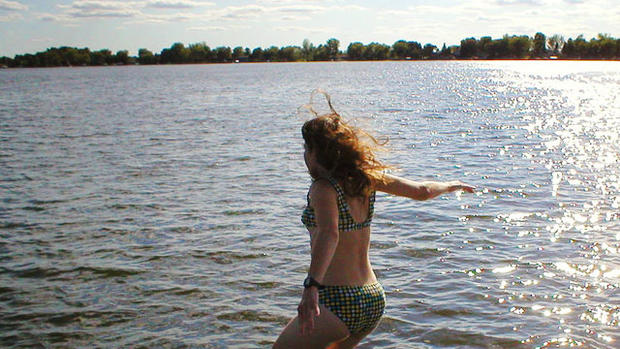"Brain-eating" amoeba kills 10 in Pakistan: How rare is it?
A "brain-eating amoeba" is concerning international health officials following thedeaths of 10 people in Karachi, Pakistan's largest city.
Musa Khan, head of the World Health Organization's Disease Early Warning System in Pakistan, said the deaths occurred from March to September. The deadly infection is caused by the amoeba Naegleria fowleri, which mostly lives in warm, unclean bodies of fresh water.
Khan said municipal authorities launched a campaign in the area to ensure the supply of clean water to residents, while health officials are carrying out a public awareness campaign to educate and guide people and local doctors about the disease. No other cases have been reported in other parts of Pakistan.
- "Brain eating amoebas" kill 10 in Pakistan
- Brain-eating amoeba suspected as cause of 9-year-old's death
- Investigation: Tap water in neti pots behind two brain-eating amoeba deaths
"There is no need to panic over these deaths," Khan told the Associated Press. "There is a remote chance for the spread of this deadly disease."
Naegleria fowleri resides in fresh waters, where the amoeba eats other microbes like bacteria found in the sediment at the bottom of lakes and rivers.
The rare but often deadly infection the amoeba causes is called primary amebic meningoencephalitis (PAM), according to the Centers for Disease Control and Prevention. Once the amoeba enters the nose, it travels to the brain where it causes PAM. Infection typically occurs when people go swimming or diving in freshwaters.
To reduce risk of getting the infection while swimming, people should hold their noses shut, use nose clips or keep their heads above water while swimming in freshwater and avoid stirring up sediment, the CDC said. The only certain way to prevent a Naegleria fowleri infection is to refrain from water-related activities.
People cannot be infected by drinking contaminated water, but U.S. cases have been reported among people using nasal irrigation, including some neti pot users.
The amoebic infection is considered rare in the U.S., having struck 32 people from 2002 to 2011. Only one person out of 123 known infected individuals in the U.S. from 1962 to 2011 has survived.
